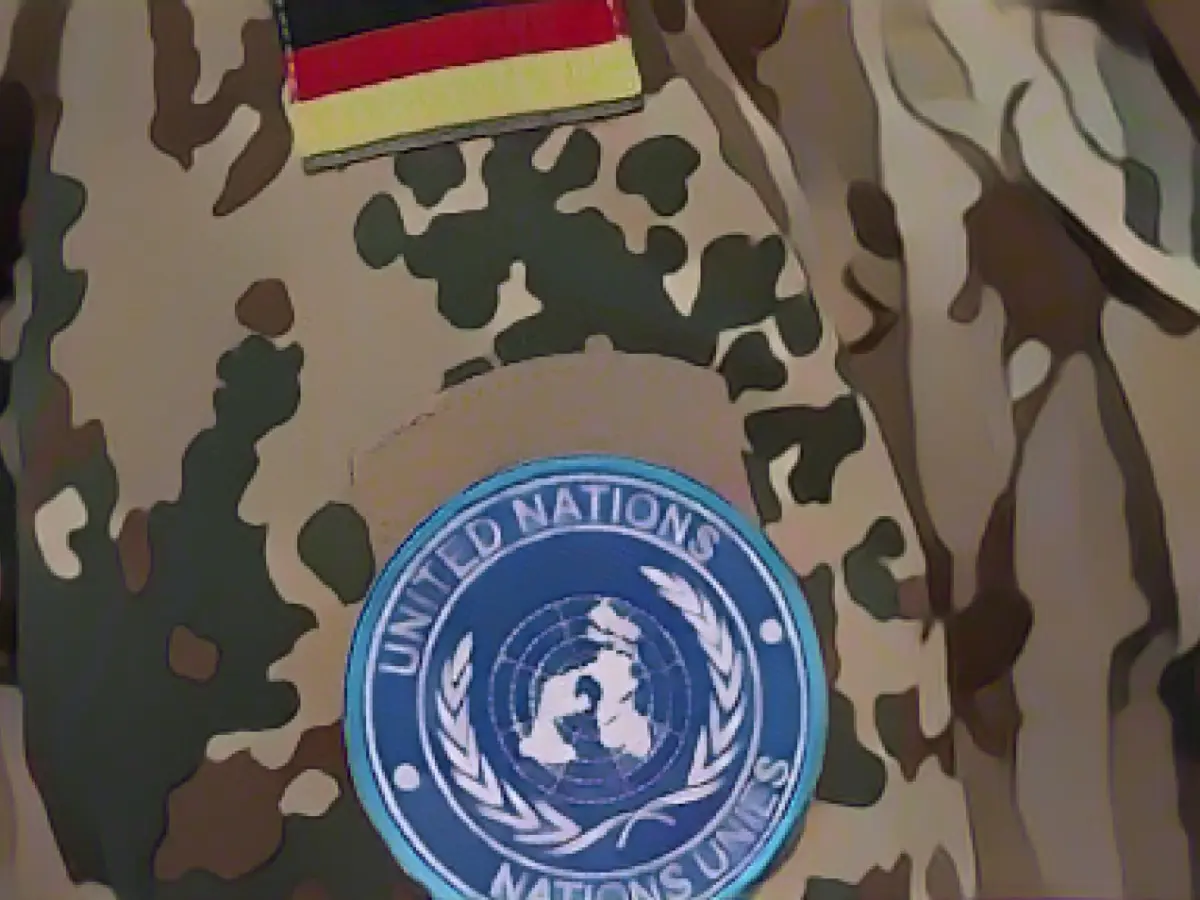Bundeswehr Bids Farewell to Mali After Decade-Long Mission
The German army, or Bundeswehr, has concluded its United Nations (UN) mission in Mali, marking the end of their second major deployment outside Europe. Following their departure from Camp Castor on the outskirts of Gao airport, the last batch of German soldiers journeyed towards an Atlantic coast stopover before eventually returning to Wunstorf airbase in Lower Saxony later in the week.
This significant milestone follows their mission in Afghanistan, which held the title of the Bundeswehr's most dangerous deployment outside Europe. The lethal accident involving two German pilots in 2017, in which their Tiger combat helicopter crashed in Mali, underscores the perils faced by these servicemen and women. Furthermore, a total of twelve German soldiers had been injured in a 2021 suicide attack. Over the years, approximately 20,000 German peacekeepers, or "blue helmets," had been engaged in the UN mission.
The field camp at CaMP Castor served as the main hub for the German contribution to UN troops in recent years. As the final contingent of German troops prepared to depart, there remained only a few soldiers stationed in the Minusma headquarters in Bamako, the capital. The UN peacekeeping mission announced its formal closure ceremony there on the previous day. The UN reported that blue helmets from 53 countries had been part of the mission.
Critical Perspective: Mali's Foreign Minister Sees Blue Helmets as a Problem
The Malian military government demanded the withdrawal of all 12,000 UN peacekeepers, citing the blue helmets as an issue rather than a solution to the country's security situation. Malian foreign minister Abdoulaye Diop alleged that the UN troops had failed to adequately respond to the evolving security situation, which led to hundreds of civilian deaths in 2021.
The UN Security Council subsequently initiated plans to disband Minusma, citing the need to address the escalating human rights concerns arising from alleged Russian mercenary involvement and a UN report documenting fierce clashes between Malian soldiers and these mercenaries, resulting in numerous civilian casualties.
Internal Challenges Facing the German Army in Mali
Chaotic Departure
The German withdrawal process was fraught with difficulties, such as logistical complications following a military coup in Niger and resultant deterioration of diplomatic relations between the two neighboring countries. This further hindered the withdrawal process, necessitating Germany to rely on civilian firms for the final transportation of abandoned military equipment.
Customs Bureaucracy
A significant setback occurred with the delay of a transportation convoy of German military goods through Nigerien customs. The transportation of military equipment left behind at the field camp in Gao remained stranded, magnifying the complexity of the withdrawal process.
Cooperation with Russia
Faced with escalating security challenges, Mali's military government opted to strengthen its ties with Russia. The ramifications of this strategic shift remained unclear, but it presented additional challenges for an already intricate and potentially contentious operation. What does this mean for the future of UN peacekeeping missions and the partnerships of participating nations?
Sources:
- "German Soldiers Injured and Killed in Mali":
- "German Military Challenges in MINUSMA":
- "Alleged Russian Mercenaries in Mali":
Enrichment Data:
The United Nations - Bundeswehr mission in Mali, known as MINUSMA (United Nations Multidimensional Integrated Stabilization Mission in Mali), has faced several challenges and undergone significant changes, although it has not officially ended. The mission involves an extensive range of international partners, and Germany is a key contributor.
Reasons Leading to Adjustments in German Military Deployment:
- Operational Challenges: The mission has experienced various operational hurdles, such as logistical issues, security risks from conflicts with militant groups like AQIM and Ansar Dine, and the psychological and physical strain on soldiers.
- Strategic Shifts: The shifting focus of the German military towards NATO's eastern flank and armed forces capable of rapid deployment and mobility has necessitated reevaluation of resources allocated to missions like MINUSMA.
- Preventative Measures: To better target investments in military readiness, Germany has emphasized specialization in training and equipment to cope with diverse environments. Additionally, mental health services, rest periods, and measures to prevent burnout ensure that soldiers are in top shape to carry out their duties effectively.
Challenges Faced by Germany During Deployment:
- Logistical Support: Ensuring a robust supply chain, especially for fuel, ammunition, and spare parts, is a significant challenge in remote areas with limited infrastructure.
- Operational Effectiveness: The effectiveness of forces in diverse environments requires specialized training and equipment. Continuous investment in training and adaptive equipment is critical to ensure operational readiness.
- Security Threats: European nations and UN peacekeepers face numerous security threats in Mali, including militant attacks, kidnapping, and ambushes by various militant groups such as AQIM and Ansar Dine.
- Political and Strategic Considerations: Germany's military involvement in MINUSMA is part of a broader strategy to contribute to international peacekeeping efforts while addressing security challenges along NATO's eastern flank. This strategy requires careful resource allocation and strategic planning.
In summary, while the German military's involvement in MINUSMA has not officially ended, the mission has faced significant operational, logistical, and security challenges. These challenges have led to ongoing evaluations and adjustments in the deployment strategy to ensure the effectiveness and sustainability of the mission.








